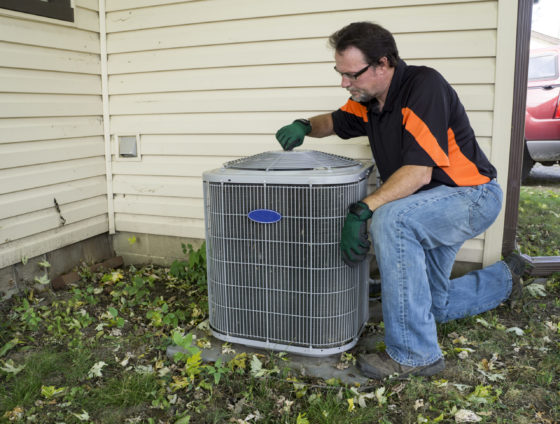
Like your tires and your mattress, your heat pump experiences daily use – pumping warm air in during winter months and warm air out in the summer. Anything that works every day, all year round, is going to give out at some point.
At Jewell Mechanical, we are often asked how long the average HVAC unit heat pump lasts and when it should be replaced. And while the answer varies, there are some tell-tale signs that it might be time for repairs or to invest in a new unit altogether.
How Long Should a Heat Pump Last?
The Average Heat Pump Lifespan Is 15 Years
If your current heat pump was installed the year that LSU beat the Vols for the SEC Championship (2001), then it’s probably nearing the end of its run if it’s not there already.
Heat pumps last roughly 15 years, according to the U.S. Department of Energy (DOE), but may start showing its age after just 10 years. It really just depends on your unit, its efficiency, and how well you’ve kept up with your HVAC unit maintenance.
The DOE has developed a great infographic that explains how different home heating systems work and the average lifespan of each.
Do Heat Pumps Lose Efficiency with Age?
Aging Heat Pumps Will Work Less Efficiently
Does your house have cold pockets in the winter? Do some rooms never seem to get as warm as others? There can be many reasons for this – everything from drafty windows to poor insulation – but an aging heat pump or one that needs repair is definitely one of them.
A significantly higher electric bill can be one of the first signs that one or more components of your heat pump require attention. (The DOE states that heat pumps, when working properly, are 50% more energy efficient than other heat sources such as baseboard heaters or furnaces.)
A failing heat pump may also freeze up, shut off, make uncharacteristic noises, trip a circuit breaker, or have a faulty inside or outside fan that either doesn’t run or does so unpredictably.
How Do You Diagnose a Heat Pump Problem?

Heat Pump Problems Can Arise From Many Sources
Heat pump inefficiency may be sourced at the unit or a problem somewhere else in your heating system. Some symptoms are easy to diagnose, some more difficult:
- Ice accumulation on your unit. Ice storms, which seem to hit the Nashville area several times per season, bring ice build up. Natural accumulation is one thing. But there may be an underlying mechanical issue causing frost build up (e.g., your heat pump defrost cycle is not being activated).
- Dirty unit, including air filter. Your heat pump takes a beating from the elements. Again, regular maintenance can help stop problems before they start. You can also replace your air filter once a month, just as you would during the summer months and using the same process:
- Remove or open the air register grill.
- Take out the old filter and insert the new one.
- Look for arrows on the side of filter and place the air filter so that the arrows are pointing toward the duct work rather than toward your room.
- More advanced mechanical issues. These include problems with your heat pump’s refrigerant, compressor or valves, or duct leakage. Nearly all of these will require a visit from one of our technicians.
If the worst should happen – a heat pump malfunction during one of the coldest stretches of the season – your heat pump’s emergency heat function will serve as a short-term backup until we can make the necessary repairs or replacements.
We offer 24-hour emergency HVAC unit service and, if you have an Energy Savings Agreement with us, you’ll receive priority customer status.
Simply call us or fill out our contact form to get an estimate. We want to help you make the best decision for you, your family, and your budget. That’s why we always recommend a repair before a replacement.
